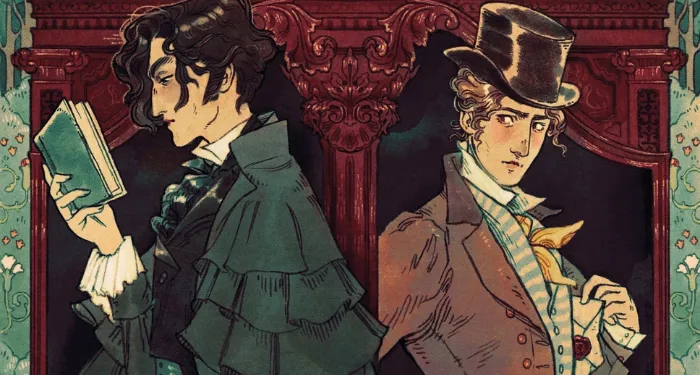In an epigraph to his remarkable debut novel, Glorious Exploits, Ferdia Lennon quotes Gilbert Murray’s translation of Euripides’ play The Trojan Women. Murray, one of the leading Greek scholars of the early twentieth century, was, in the words of the historian Richard Symonds, “haunted by the lessons of Greek history and the memory of how Athens had forsaken democracy, had become corrupted by Imperialism, and gone to its friendless doom.” Murray was comfortably embedded in English society as professor of Greek at Oxford and sufficiently well known to be recognizable as the model for Adolphus Cusins in his friend Bernard Shaw’s 1905 play Major Barbara. But he was also an anti-imperialist born in Australia of Irish rebel stock. While the British ruling elite brandished its knowledge of ancient Greek as a mark of class distinction and cultural superiority (an affectation revived recently by Boris Johnson), Murray used his much deeper learning to challenge its assumptions. He saw in the fate of Athens a warning to all democracies that succumb to the allure of violent domination.
In 1915, when World War I was as yet young in carnage and the United States was still neutral, Harley Granville-Barker toured American universities with spectacular outdoor performances of Murray’s resounding version of The Trojan Women. The central characters are the enslaved human booty of the victorious Greeks who have just sacked their city. Glory, the word Lennon adapts in his title, is its implicit subject. The play, as Murray had put it two years earlier in Euripides and His Age, is one in which “slowly, reflectively, with little stir of the blood, we are made to look at the great glory, until we see not glory at all but shame and blindness and a world swallowed up in night.” At its beginning, the sea-god Poseidon foretells the ruin that awaits these exultant conquerors: the “treaders down of cities” will themselves be destroyed.
In the introduction to his translation, Murray presented the play as a protest against the glorification of war:
The consummation of a great conquest, a thing celebrated in paeans and thanksgivings, the very height of the day-dreams of unregenerate man—it seems to be a great joy, and it is in truth a great misery.
Euripides, Murray pointed out, wrote “under the influence of a year which…had been filled full of indignant pity and of dire foreboding.” He noted that Euripides created his devastating drama in 415 BCE, while Athens was “now entirely in the hands of the War Party” and while its fleet “was actually preparing to set sail for its fatal enterprise against Sicily.”
That enterprise was fatal indeed. For Athenians who had not paid attention to Euripides’ forebodings, the destiny of the army that set sail with exuberant expectations was unimaginable. They first learned of the calamity from a traveler who stopped for a haircut. According to Plutarch, writing five hundred years later, “A certain stranger, as it would seem, landed at the Piraeus, took a seat in a barber’s shop, and began to discourse of what had happened as if the Athenians already knew all about it.” The barber ran into Athens and told the authorities what he had heard: that the army they had sent to invade Sicily and take its main city, Syracuse, had suffered a catastrophic defeat. The unfortunate voyager was brought before the Athenian assembly, condemned as a “storymaker,” and “fastened to the wheel and racked a long time, until messengers came with the actual facts of the whole disaster.”
The messengers told not just of a military rout but of the creation of one of the first known death camps. While their leaders Nicias and Demosthenes were executed, around seven thousand captured Athenian soldiers were imprisoned in appalling conditions in the quarries outside Syracuse. As Thucydides recorded in his History of the Peloponnesian War:
Large numbers were confined in a deep and narrow space. Direct sun and suffocating heat, with no shelter, oppressed them first by day, and then the autumnal nights that followed brought cold and a contrasting extreme of temperature which ruined their health. In such a cramped space they had to do everything just where they were: and with the dead bodies piling up too (men dying of their wounds, through the changes of temperature, and other such causes), the stench was unbearable. They were also afflicted by hunger and thirst (over eight months the daily ration for each man was half a pint of water and a pint of cereal), and suffered every other misery imaginable when men are thrown into a place like that.
The fate of these men is terrible enough in itself, but it is even more grimly evocative in the way it prefigures so many of European history’s lagers and gulags and prisoner-of-war camps.
Yet there is also, at least in Plutarch’s telling of the tale in his “Life of Nicias,” a hint of the miraculous, an improbable touch of mercy:
Some [Athenians] were saved for the sake of Euripides. For the Sicilians, it would seem, more than any other Hellenes outside the home land, had a yearning fondness for his poetry. They were forever learning by heart the little specimens and morsels of it which visitors brought them from time to time, and imparting them to one another with fond delight. In the present case, at any rate, they say that many Athenians who reached home in safety greeted Euripides with affectionate hearts, and recounted to him, some that they had been set free from slavery for rehearsing what they remembered of his works; and some that when they were roaming about after the final battle they had received food and drink for singing some of his choral hymns.
The playwright who had given voice to “indignant pity” while the Athenians were setting off in pursuit of glory had unknowingly saved some of them by stirring, in the hearts of their captors, a compassion that transcended all indignation.
Though Lennon does not mention Plutarch’s account in his acknowledgments, it is clearly the inspiration for Glorious Exploits, which is set in Syracuse in 412 BCE and imagines two local men trying to get Athenian captives to stage Euripides. Lennon, who was born in Dublin to an Irish mother and a Libyan father, writes that the novel “took a long time for me to write—almost seven years from the first line to the last.” That last line, delivered in a short coda set in Athens, has Euripides’ servant Amphitryon reflecting that “his master was ever in love with misfortune and believed the world a wounded thing that can only be healed by story.” Lennon’s own labor of love springs from the same rueful faith. It is a story of a wounded world in which art allows at least the possibility of healing.
The wound nonetheless suppurates. The novel reeks of that hellish quarry outside Syracuse where the Athenians are penned like slowly dying animals, its smell “thick and rotten, the air almost misty with stench.” We enter it in the company of two unemployed Syracusan potters: the narrator, Lampo, and his childhood friend Gelon. The morning sun is already pitiless: “Even the lizards are hiding, poking their heads out from under rocks and trees as if to say, Apollo, are you fucking joking?” The prisoners, “hairy skeletons with a hint of skin,” try to hide in crevices and tunnels to escape its heat. A vengeful Syracusan, whose son was captured and tortured to death by the Athenians after one of the earlier battles, is stalking them, clubbing random victims to death.
When we meet them Lampo and Gelon are carrying water, wine, olives, and cheese to the prisoners, but theirs is not a mission of mercy. They will trade food and drink for dramatic poetry: “‘Water and cheese,’ says Gelon, ‘for anyone who knows lines of Euripides and can recite them!’” They discover Paches, an educated Athenian who can do just that, and he in turn leads them to Numa, who has “acted in a load of plays,” not in Athens but in “small rural theatres around Attica.” Gelon conceives the idea of doing more than gathering stray lines of Euripides. He will stage two of his plays, Medea and the latest one, The Trojan Women, right there in the rough amphitheater of the quarry.
The success of Glorious Exploits owes much to Lennon’s decision to make Lampo, not Gelon, the narrator. Lampo is smart but ordinary. He limps because he was born with a clubfoot. He is a bit of a wastrel who, at thirty years of age, still lives with his mother; his father ran off when Lampo was two. He has had no job since the pottery factory closed, and he moons over Lyra, a girl enslaved at the wineshop where he gets drunk most nights on the cheapest plonk. He spends money meant to buy masks and costumes for Gelon’s production in the quarry on a new blue chiton and a pair of crocodile-skin boots. While Gelon’s eyes are “the colour of shallow sea when the sun shines through it,” Lampo’s are “shit brown.”
Lampo comes from a comedy; Gelon is the tragic figure. His young son has died from a long illness. (Though Lennon does not belabor the point, both Medea and The Trojan Women feature the deaths of children.) Gelon’s wife has left him, and he sees her image everywhere, including in a mural at the wineshop: “She was in the wall painting over there. The one of Troy. She’s one of the women being put on the ships at Troy.” He has been obsessed with the theater ever since he saw Oedipus Rex at the age of seven or eight:
I was a boy and sat on my da’s knees, and I looked at the doomed king trying to find out who killed his da, and I felt awful for him. I imagined what that must be like, and I squeezed my own da’s hand and told him I’d never kill him.
Gelon’s father was as unimpressed by this reassurance as he was by his son’s desire to be a professional singer rather than, as he must become, another worker in the pottery factory. His artistic imagination has had no real outlet and his family life has disintegrated. His fixation on getting the Athenian prisoners to stage Euripides’ plays is credibly fueled by his own frustration and pain. But because those deep emotions are refracted through Lampo’s jaunty tone, they retain the purity and power of an unarticulated grief. Gelon, we sense, can “feel awful” for himself by feeling for the women of Troy, and through them he can come to feel for the Athenian prisoners. Theater is a medium through which private anguish can be given a public form and in turn shared with others, even the enemy.
What makes Gelon’s compulsive urgency especially plausible is that Athens itself may be on the brink of extinction. The city did in fact survive the disaster of the invasion of Sicily, but it would not have been hard to imagine Sparta and its allies quickly finishing it off after this terrible defeat. Gelon tells Lampo that “some people are saying when Athens falls, and it has to fall, the Spartans will just burn it to the ground. There might never be another Athenian play again!” This is also part of Gelon’s pitch to the Athenians themselves. If they perform well, they and their city will at least survive as a story to be told in Syracuse: “Whatever happens in the future, Athens will be remembered, and you will be a part of that remembrance.”
This is a cruel world in which cities really are extinguished and their cultures wiped from memory. Their poetry and their theater have not made the Athenians more humane: had they been victorious they would have enslaved the Syracusans just as the Argives enslave the Trojan women in Euripides’ play, in which Andromache describes the brute reality of dehumanization (in Murray’s translation): “I and my babe are driven among the droves/Of plundered cattle.” Lennon gives us enslaved people with their humanity intact. It is striking that, in contrast with the common practice among novelists who set their works in classical times, he is careful to ensure that most slaves are named and all are given a backstory.
The doorkeeper at the wineshop where Lampo and Gelon drink has a brand on his forehead, but he also has a name, Chabrias, and a set of stories he likes to tell of his lost homeland. The three artisans who make the theatrical masks are slaves from Libya (a nod, perhaps, to Lennon’s own paternal origins). They may be brothers, but they can’t be sure: “Well, we were sold so young.” The strange sea captain who ends up funding the production of the plays takes off his chiton at one point, and we see his history on his back: “Almost every patch of the skin there is lurid with scars, some with the clear puckering of countless brandings, as if he’s been bought and sold aplenty.” He speaks of his childhood self in the third person, as though his early existence belonged to someone else: “Everyone he ever loved died except his mother. She was taken away, probably to be fucked by the very men who killed her children. But the boy survived.”
Lyra, the slave with whom Lampo falls in love, turns out to be the daughter of a philosopher from Lydia. Lampo is illiterate, but Lyra can read and write in Greek and Persian. Lennon handles the disparities between them with acute sensitivity: she is his superior in education and understanding, but he is free and she is not, and the second point of difference puts the first in the shade. Yet Lampo is not stupid. He understands that when he offers to raise the money to buy her from her owner and asks her whether in those circumstances they could “get something going,” she cannot answer him truthfully: “Regardless of the truth, she’ll tell me yes, ’cause what else has she?” There is a quiet tragedy in Lampo’s realization that the condition of slavery makes consent—and therefore love—impossible. The reader, like Lampo, can never know what Lyra really feels for him.
Nor can we forget that the Athenian prisoners who rehearse Euripides in the quarry for Gelon and Lampo are essentially slaves too. Lennon does not sentimentalize the relationship between the would-be directors and their actors. The Greeks must perform or perish. “These poor bastards,” as Lampo tells us early on, “are just waiting to die.” Just as Lyra has to accept Lampo’s declaration of love, the prisoners must try to recall the lines of Euripides for cheese and olives. Lampo finds their desperation funny: “One bluffer starts doing a scene where Medea is being wooed by Achilles, which even I know is a load of bollix. Medea was way before Achilles. She was with Jason.” There is no soft landing on the comfort of mutual redemption through art. Sympathy has to be quarried from this horror like stone hewn from the rock face.
Within this harsh realism, Lennon finds room for playfulness. He does so largely by layering his own Irishness over the classical narrative. The most exotic and mysterious character in the novel is the sea captain, a wide-ranging smuggler who collects curiosities that have a violent history. Lampo and Gelon come upon some boys playing with armor and weapons they have stripped from the unburied bodies of Athenian fighters killed in the battle. They learn of the strange trader whose ship is docked in the harbor and who will pay good money for such grisly objects, and they manage to get past his crew of cutthroats to persuade him to do so. He becomes the enabler of their plans, both for the staging of the plays and later for the escape of some of the actors, an outlandish deus ex machina whose motives are as unfathomable as those of the gods.
He is called Tuireann—a name from Irish mythology. He speaks an unknown language, has (beneath a bad dye job) red hair, and was, he reveals, “born on the tin islands,” which is how the classical world may have referred to Britain and Ireland. He was snatched, he says, as a slave from a “land of rain and woods, a green-growing world.” Lennon chose this name, I suspect, because in the Irish stories Tuireann is the progenitor of three sons whose adventures are clearly localized versions of the Greek legends of Jason and Heracles. They are a mash-up of the classical and the indigenous—and so, in its way, is Glorious Exploits. For although it conjures an engrossing ancient Greek world, it also makes us feel like its story is happening now. The archaic melds with the immediate.
Lennon achieves this fusion through language. Lampo’s narrative voice is that of contemporary working-class Dublin. The setting may be Syracuse more than 2,500 years ago, but the cadences and the argot are those of Lennon’s own native land of rain and woods. This is a risky strategy—if the Dublinese were overplayed, the whole thing would become phony. Linguistic gimmicks wear very thin very quickly. Lennon’s achievement is to make the Irish inflections seem so natural that they become unremarkable. He does not apply them with a heavy hand—the language he has forged for Lampo moves deftly between the demotic and the dramatic. It is vulgar enough to be enjoyably earthy but sufficiently dexterous to rise without strain into moments of high emotion and serious thought.
The best way to get a sense of Lennon’s verbal soundscape is to compare it to that of a novel that has an obvious bearing on Glorious Exploits, Mary Renault’s brilliant The Mask of Apollo, first published in 1966. It, too, is largely set in classical Syracuse, albeit some decades after the end of Lennon’s story. It, too, has the Greek theater at its center—its narrator is an actor. He made his debut in The Trojan Women as the boy Astyanax who, in one of the most devastating scenes in all of theatrical history, is taken from his mother, Andromache, and thrown from a high tower. Renault gives us a wonderfully engaging account of the scene from the point of view of the six-year-old child who has to play it:
Soon after came my cue to be brought on, dead. They stretched me out on the shield, and a couple of extras lifted it…. The chorus called out the dreadful news to my grannie Hecuba…. Tears burst from my shut eyes; my nose was running. I hoped I might die, that the earth would open or the skene catch fire before I sobbed aloud…. I was gathered into the arms of Hecuba; the wrinkled mask with its down-turned mouth bent close above…. Queen Hecuba whispered in my ear, “Be quiet, you little bastard. You’re dead.”
The wryly ironic tone and the undercutting of tragedy by farce are, like most of Renault’s reconstructions of an ancient Greek world, deeply convincing, and Lennon surely picks up on them. But Renault’s polished prose has the air of an old actor’s carefully burnished anecdote. We could imagine him now on a talk show.
Lennon recounts the same scene from The Trojan Women through Lampo’s narration. Gelon has cast Strabo, one of the little boys they earlier found playing with the Athenian weapons, as Astyanax:
The fella playing the guard takes Strabo by the hand and improvs something brilliant. He kneels and asks Strabo if he’d like to go up to the tower and look at the city he’ll one day rule, and Strabo laughs with delight, and that innocent laugh cuts through the audience. You can almost watch them recoil and then loosen when the boy and man walk off the stage. Loosen, ’cause there’s relief in knowing that at least they won’t have to see the killing. No play shows that. But then man and boy appear on a boulder above the stage, still holding hands, and the guard points out to a spot on the horizon and says: “Would you like to fly over your city?”
The guard pushes the boy off the rock. This is avowedly anachronistic. Lampo is right to say that no Greek play would enact such a violent scene. Euripides shows the boy being taken away from his mother and his body being carried back onstage but not what happens in between. Yet Lennon makes it all feel not just plausible but urgently necessary. The language has a rough immediacy that carries us along on a wave of dramatic energy. Where Renault’s prose feels beautifully written, Lennon’s has the boisterous, uncultivated energy of direct speech. We are still in a world of oral transmission where plays and stories are heard before they are read and can be called to mind without recourse to texts. We remember that Lampo is illiterate, and we learn at the end that he is recounting his story to Strabo, who is now a grown man.
There is a political point here. Lennon, picking up on Murray’s challenge to imperialist glorifications of the Greeks, uses this Irish speech to create an off-center perspective on Athens and its disastrous dreams of empire. Lampo and Gelon are Hiberno-Hellenes, of but not quite in the dominant culture of the Greek “mother country.” Just as Ireland and other colonies produced writers who infiltrated the British imperial ethos from its peripheries, Syracuse functions as a place from which golden age Athens can be both hated and loved, exposed and embraced. Its polis is admirable not because of its swagger but because it can produce a play, like The Trojan Women, that reveals swagger as cruel conceit.
Glorious Exploits owes its emotional impact to the clear-eyed skepticism that makes its hopefulness hard-won. Lampo is moved because he can see, beneath the ragged costumes of the Athenians playing Hecuba, Andromache, and Cassandra, the withered, bony legs and the chained ankles of the enslaved actors: “Everything about them that’s fucked and broken fits with this play.” The Syracusans who gather to watch the show can likewise be moved by the way it touches on the pain they have shared with their enemies: “’Cause for the briefest moment, Syracusans and Athenians have blended into a single chorus of grief for this make-believe.” Lennon’s artistry allows him, without being naive or pious, to make the case for art. Lampo knows how crazy their whole enterprise is but comes to wonder whether there might not be “wisdom in a faith-filled lunacy.” Art is the belief, maintained against repeated evidence to the contrary, that there must be.
“Pity,” wrote Murray, “is a rebel passion.” It is also, however, a democratic passion—what it rebels against is the hubris of reveling in the agonies of others because we think that we ourselves are immune to suffering. We can feel for others because we can imagine what it is like to be them—an ability that is as crucial to democracy as it is to theater. Euripides tried to warn his fellow citizens that their democracy would not survive if it became pitiless. By bringing that truth so fiercely alive, Lennon has given us a fiction that does not remain safely historical.


















 English (US) ·
English (US) ·